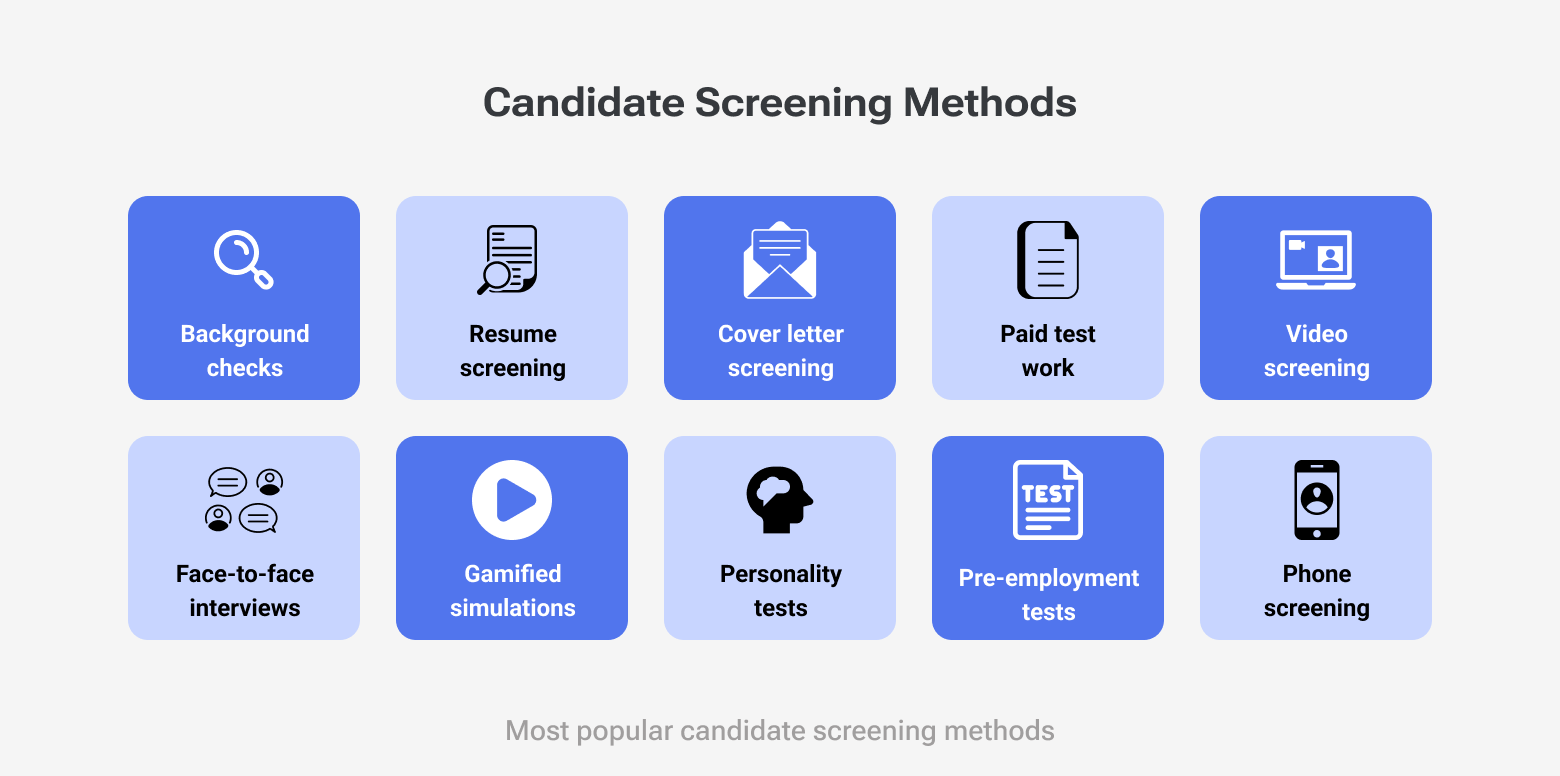A growing number of companies are looking past conventional hiring and choosing dedicated offshore development instead. The appeal is clear: lower costs and fewer administrative burdens during product development.
Strategic approach allows companies to hire a team of developers at lower rates while avoiding administrative burdens and additional expenses such as benefits, training, and workplace maintenance. According to the International Organization for Standardization, outsourcing helps businesses reduce costs by 15%.
Tapping into a global talent pool rather than relying solely on the local market greatly increases the chances of finding the right expertise. According to Statista, 64% of IT companies worldwide report challenges in hiring due to tech talent skills shortage or experience among candidates.
The decision to hire dedicated remote developers is usually a game-changer for a business if you approach it properly and without fuss.
Additionally, this hiring model is faster than traditional approaches, an important advantage, as in today’s dynamic business environment, time often determines the difference between success and failure.
Our guide to hire dedicated developers can assist you with this by outlining the key steps to take and facets to consider.
Step 1: Analyze your requirements and needs
Before starting an active search, you must clearly understand what to search for. Therefore, we strongly recommend initiating the hiring process by conducting a thorough examination of your requirements. In this regard, take into account the following aspects:
Your goals: Check whether you have set clear project objectives. You and all engaged specialists should utterly understand what specific objectives they need to achieve.
Tech stack and project scope: If your project is at its outset, determine the technologies you want to leverage and the project scope, encompassing key and nice-to-have app features. 79% of IT outsourcing efforts are focused on application and software development, reflecting its dominance in the outsourcing landscape.
Existing team: Assess your current in-house staff and specify any skills or roles you intend to complement via the engagement of offshore programmers.
Needed skill sets: Clearly outline the skill sets you're seeking in certified dedicated developers, aligning them with the tasks you plan to delegate to them and the deliverables you expect from them.
Industry knowledge: Decide whether deep industry knowledge is a crucial factor. If you clearly understand all industry standards, challenges, and requirements, you may need just task-focused individuals. But if you and your internal team lack industry expertise, it’s better to hire developers who have already dealt with similar projects.
Budget and timeframe: Estimate your budget and deadlines to understand how many offshore experts you need and how many you can actually afford.
So, it is not wise to rush headfirst into hiring offshore developers. Before that, you must take some time to thoroughly analyze your current state of affairs and reveal your exact hiring needs.
Step 2: Study key offshore development destinations
If you operate in a state with a high-income economy like the USA, Canada, the UK, or Australia, you must consider countries with lower-middle-income economies for hiring offshore developers. Actually, this is the primary factor enabling you to considerably cut down expenses for software development.
Here, we present several offshore development destinations that have traditionally been among the most popular choices:
Region
Average software development hourly rate, USD
Hire developers from Latin America
Such countries as Mexico, Argentina, and Brazil stand as absolute leaders in IT outsourcing within the region. More recently, Chile has also emerged as a strong contender.
A broad talent pool and minimal time difference with the USA and Canada make it appealing to hire dedicated developers from LATAM for IT outsourcing. However, rates in this region are generally higher compared to some other outsourcing destinations.
Average software development hourly rate in Latin America by country
Country
Average software development hourly rate
Ease of doing business (out of 100%)
Political stability (from -2.5 to +2.5)
Hire software developers in Eastern Europe
This region provides a multitude of developers with experience in diverse technologies and programming languages. Poland, Ukraine, Romania, Bulgaria, and Slovakia are IT outsourcing leaders here.
Excellent services at competitive prices are the key reason to choose Eastern Europe. There is also a good chance of having overlapping working hours in offshore time differences if you are based in Australia or the West Coast of the USA.
Average software development hourly rate in Eastern Europe by country
Country
Average software development hourly rate
Ease of doing business (out of 100%)
Political stability (from -2.5 to +2.5)
Staff outsourcing to Asia Pacific region
Asia-Pacific accounts for 23% of global IT outsourcing revenue in 2023, with India, China, and the Philippines as key players.
Noteworthy players in this region are China, Vietnam, the Philippines, and Bangladesh. Still, India is considered to be an absolute leader with 17.58% of the global software outsourcing market in 2025, driven by its vast IT talent pool.
However, when choosing to hire dedicated offshore developers from this region, it's crucial to be selective, as far too often the professional level of local specialists is significantly lower than in other regions.
Average software development hourly rate in the Asia Pacific region by country
Country
Average software development hourly rate
Ease of doing business (out of 100%)
Political stability (from -2.5 to +2.5)
Software outsourcing in Africa
Several African countries, including South Africa, Egypt, Morocco, Nigeria, and Kenya are emerging as potential IT outsourcing destinations.
Their main advantage lies in offering the lowest software development rates globally.
However, the supply of dedicated developers for hire remains relatively small, and challenges such as limited infrastructure and cultural differences should also be considered.
Average software development hourly rate in Africa by country
Country
Average software development hourly rate
Ease of doing business (out of 100%)
Political stability (from -2.5 to +2.5)
When comparing offshore development destinations, it is important to assess factors such as service rates, time zone differences, talent availability, and cultural compatibility. These elements are key to identifying the most suitable location to hire dedicated development team.
Step 3: Select a trustworthy offshore partner
After identifying a suitable global offshore development destination, the next pivotal step is to begin your search for a trustworthy IT outsourcing partner in that region. Most destinations have an abundance of companies offering IT outsourcing services.
Here are several aspects to consider when choosing a staff augmentation partner:
Experience: Make sure that a potential partner can provide developers proficient in your particular technology stack.
Track record: Evaluate the professional level of an offshore partner by checking their case studies and portfolio.
Reputation: Check the company’s clientele, testimonials, and ratings across reliable platforms, as well as ask for references for further assurance.
Clear communication: Ensure that a company is open to communication and ready to use the communication channels that you prefer, while its staff is good at English.
Security: Proactively ascertain whether your potential partner adheres to essential security standards and is willing to implement additional security measures if needed.
Scalability: Assess the partner's capacity for scalability in case your project evolves or expands. A flexible partner should adapt to your changing needs.
Legal Framework: Collaborate with legal counsel to review and negotiate contracts and agreements, ensuring that they protect your interests and outline clear terms of engagement.
By diligently assessing potential offshore partners against these criteria, you can raise the possibility of forging a successful and long-lasting partnership. Always keep in mind that collaboration with a dependable partner is critical for achieving your objectives.
How to choose a staff augmentation partner
Step 4: Define your hiring strategy
There are different types of software development outsourcing models. When it comes to hiring dedicated offshore developers, you have the choice of three options:
Staff augmentation: If you opt for this model, an outsourcing company supplies you with the specialists you need, and they seamlessly integrate into your existing team, filling in knowledge or skill gaps. You hire a dedicated developer that will closely cooperate with your in-house team, serving as its efficient extension.
Dedicated development team: Your outsourcing company assembles a cross-functional development team for you, but both of you share accountability for project outcomes. A dedicated development team is exclusively committed to your project while functioning independently of your in-house team.
Project-based model: You provide an outsourcing company with specs, and it handles and leads your project on its own, delivering the software solution you need within an agreed timeframe.
By choosing the appropriate model, you set the stage for a thriving collaboration with your offshore development team.
Step 5: Craft a detailed job description
It's common for many companies in a search for dedicated developers for hire to provide rough job descriptions, but a detailed job description is a critical tool that helps to find the most suitable specialists for you.
Top points to add in staff augmentation job description:
Company mission and values. Then move on to the scope and objectives of your project and its significance within your company or the industry as a whole.
Clear role description. Explain the task for an offshore developer within your project and the impact they'll make.
Level of experience. Whether it's entry-level, mid-level, or senior. List any specific qualifications, certifications, or degrees that are prerequisites for the position.
Tools and frameworks. Specify the expected techstack that is essential for the role.
Soft skills. Emphasize the importance of sociability, flexibility, creativity, good English, problem-solving, and teamwork, and express your commitment to nurturing a collaborative work environment.
By crafting a detailed job description, you pave the way for more effective cooperation with your offshore vendor.
Step 6: Screen and interview candidates
While diligent outsourcing companies make every effort to present you with the most appropriate candidates, ultimately, you have the best understanding of your unique needs and requirements. Therefore, we recommend you make an effort to carefully review each candidate.
Scan candidates’ profiles, paying particular attention to technical skills, qualifications, experience, past projects, and any relevant certifications.
Depending on project peculiarities, you can additionally order references and background checks for criminal history, credit reports, verification reports, etc.
Shortlist potential candidates and schedule video or face-to-face interviews with them.
Assess the problem-solving abilities, soft skills, and past experiences of the candidates by asking the candidates to describe particular situations they have encountered in the past and how they handled them.
Complete a list of technical questions or prepare a live coding task to assess the technical proficiency of candidates.
By carrying out thorough interviews, you can confidently hire a dedicated developer team who not only possesses the necessary technical skills but also demonstrates the necessary soft skills and cultural alignment.
Step 7: Onboard and collaborate
Once a perfect match has been found and all bureaucratic issues have been settled, you need to swiftly integrate an offshore developer into your internal team.
This is how you can ensure a smooth integration of staff augmenting model with in-house team:
Convey your expectations to the new hires to prevent possible misinterpretations.
In advance, give them access to all the tools they need to use and provide instructions on the development environment setup.
Arrange a team meeting to introduce your new offshore developers and clarify their roles and duties to the rest of your team.
Provide your offshore developers with access to project documentation and inform them of the current project status.
Specify preferable communication channels and set reporting frequencies.
Make sure that all team meetings are scheduled with regard to a time difference.
Step 8: Manage your remote development team
As you might guess, compared to an in-house team, the appropriate management of an offshore development team requires much more effort from you.
Here are a few tips to help you with this:
Introduce a well-structured project management approach with clear task allocation, defined timelines, and milestones.
Leverage modern project management tools to foster seamless team collaboration and progress tracking.
Assign a dedicated PM to control your remote team's work and ensure complete alignment with project goals.
Conduct regular performance reviews to assess both individual and team progress.
Provide constructive criticism so that offshore developers can understand what they need to improve to contribute more effectively.
Acknowledge and reward the team's outstanding performance and significant achievements to fuel their motivation and raise morale.
Develop a communication plan that accommodates time differences, ensuring that critical meetings and discussions are scheduled at convenient times for all team members.
Nurture open and clear communication between in-house and outsourced staff.
By following the above-listed recommendations, you can improve team productivity and ensure close collaboration. Your commitment to effective management is paramount for achieving your project objectives.
Step 9: Build strong working relationships
To ensure project success, you must establish strong communication with your offshore development team. Here are some useful pieces of advice on how to achieve this:
Cultivate a positive work culture: It is pivotal to build a work environment that promotes close collaboration and inclusivity, where every team member, whether in-house or offshore, feels valued. Also, promote transparent communication, trust, and mutual respect within your team.
Facilitate regular meetings: Schedule regular online meetings to facilitate discussions, brainstorming sessions, and project updates with team members from different locations. Make sure every team member has an opportunity to voice their opinions and contribute to conversations.
Proactively address all concerns and resolve conflicts: Encourage team members to communicate openly about any challenges or concerns they may encounter. Establish a supportive environment for discussions and assist in finding mutually beneficial solutions when conflicts arise.
By nurturing close working relationships, you can enhance collaboration, boost team morale, and effectively overcome challenges, ultimately contributing to the resounding success of your project.
Conclusion
Offshore dedicated developers can be a powerful asset if managed wisely. Lower costs, faster delivery, and flexible scaling are among the standout advantages businesses can achieve.
Still, success with offshore development depends on structure. Start by analyzing hiring needs, then research top IT outsourcing destinations. Select a trusted partner, define the best hiring strategy, and craft clear job descriptions. From there, screen and interview candidates, ensure effective onboarding and collaboration, and invest in building strong relationships with dedicated developers.
Book a call and start outsourcing with dedicated software developers who help you achieve your goals.
Motivated and focused experts for up to 60% less than locals, delivered in days, not months




